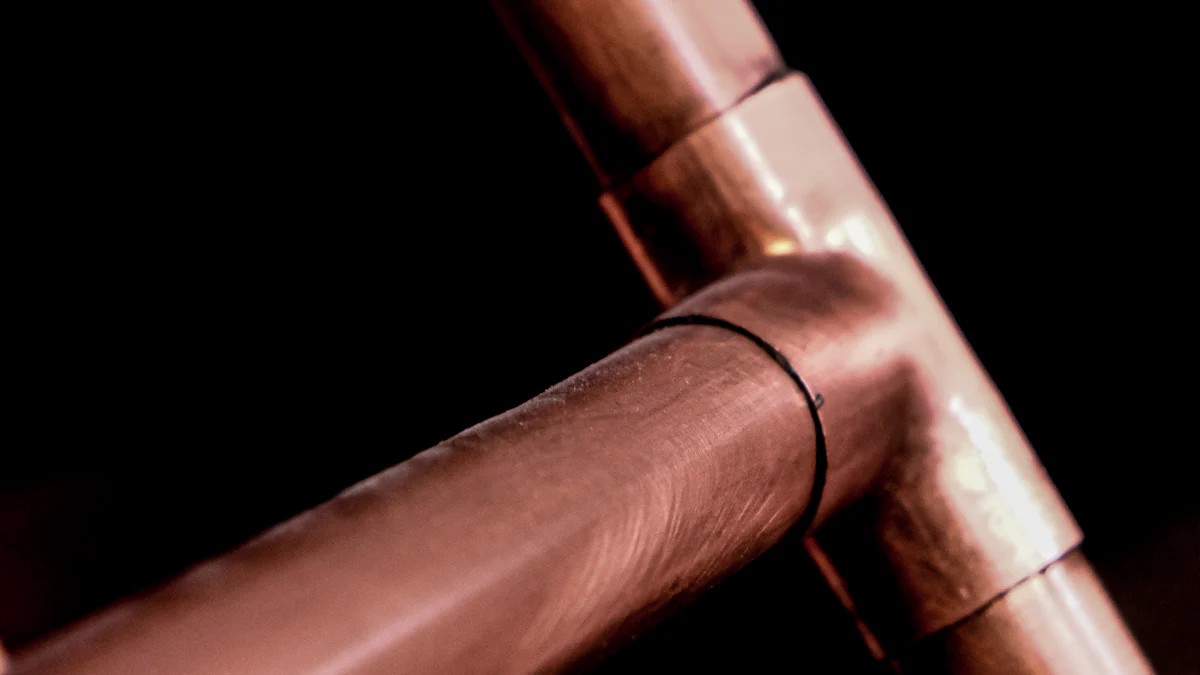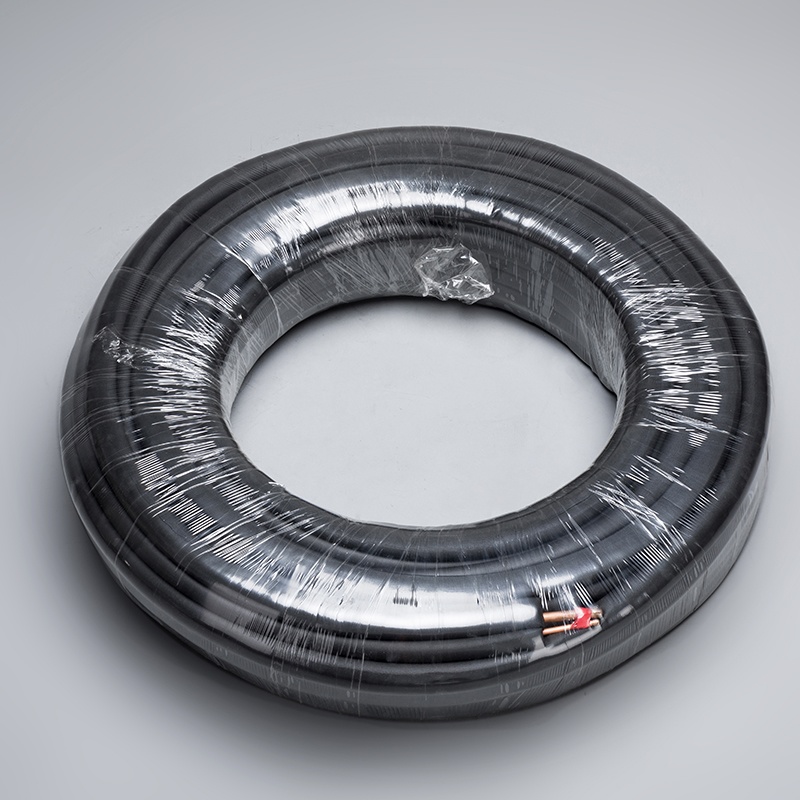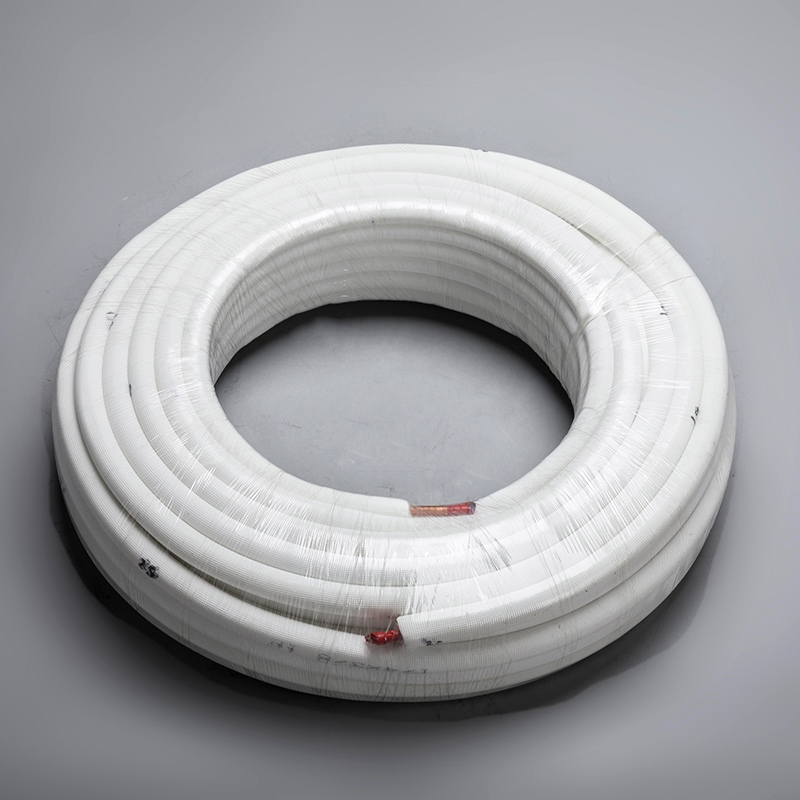Top Tips for Insulating Copper Pipes in Air Conditioners

Tips for Effective Thermal Insulation of Copper Pipes in Air Conditioners
Insulating copper pipes is a crucial step towards enhancing energy efficiency and preventing damage. Studies reveal that insulated pipes result in significant cost savings, with $3.74 per linear foot of pipe annually. Additionally, insulation acts as a shield against freezing-induced harm, safeguarding the plumbing system from burst pipes and maintaining optimal temperatures throughout. This blog will delve into essential tips for effectively insulating copper pipes in air conditioners, ensuring long-term durability and performance.
Choose the Right Insulation Material

When it comes to insulating copper pipes in air conditioners, selecting the appropriate insulation material is crucial. Different types of insulation materials offer varying levels of protection and efficiency. Here are some key insights on the types of insulation materials available for copper pipes:
Types of Insulation Materials
Fiberglass Insulation
Fiberglass insulation is a popular choice due to its affordability and ease of installation. It provides adequate thermal resistance and can effectively prevent heat loss in copper pipes.
Rubber Pipe Insulation
Rubber pipe insulation, such as Nitrile Rubber, is known for its durability and resistance to extreme weather conditions. This type of insulation offers excellent thermal protection and water resistance for air conditioning systems.
Polyethylene Foam
Polyethylene foam, like Accoflex® W, is a closed-cell thermal insulation material that excels in preventing moisture accumulation and corrosion on copper pipes. Its flexibility and easy installation make it a reliable option for maintaining optimal temperatures.
Temperature Rating Considerations
Importance of Temperature Ratings
Considering the temperature ratings of insulation materials is essential to ensure long-term effectiveness. Choosing materials like Nitrile Rubber or Accoflex® W that can withstand varying temperatures guarantees efficient thermal insulation for copper pipes.
Examples of Suitable Materials
Materials like fiberglass, rubber pipe insulation, and polyethylene foam are ideal choices for insulating copper pipes in air conditioners. Each material offers unique benefits, from cost-effectiveness to superior protection against moisture and corrosion.
Proper Installation Techniques

When it comes to insulating copper pipes in air conditioners, proper installation techniques are paramount for ensuring optimal performance and longevity. Expert guidance from professionals like Neo Thermal Insulation and Hayes Plumbing emphasizes the significance of meticulous installation practices. By following industry best practices, individuals can enhance the effectiveness of their insulation efforts and mitigate potential risks associated with improper installations.
Wrapping Techniques
To begin with, mastering the art of wrapping insulation materials around copper pipes is essential. A precise and snug fit ensures maximum coverage and minimizes heat loss. Here are some key steps to consider:
How to Wrap Fiberglass Insulation
Measure the length of the pipe accurately.
Cut the fiberglass insulation material to match the measurements.
Wrap the insulation around the pipe securely, ensuring no gaps or overlaps.
How to Wrap Rubber Insulation
Select high-quality rubber pipe insulation suitable for your needs.
Start wrapping from one end of the pipe, moving towards the other end.
Secure the insulation in place using adhesive or tape for a tight seal.
Sealing Joints and Seams
Equally important is sealing joints and seams effectively to prevent air leakage and maintain thermal efficiency within copper pipes. By addressing potential weak points in the insulation system, individuals can optimize energy savings and reduce heat transfer significantly.
Importance of Sealing
Properly sealed joints ensure that no air escapes or enters the insulated area, preserving desired temperatures consistently.
Effective Sealing Methods
Use specialized sealants designed for insulating materials.
Apply sealant generously along seams and connections.
Verify that all joints are tightly sealed to prevent any thermal bridging.
Additional Protective Measures
Air-Sealing and Vapor-Sealing
To prevent condensation-related issues and protect against environmental risks, proper insulation is essential. Quality insulation products for copper pipes can significantly reduce the risk of condensation, mold growth, and potential health hazards. By choosing quality insulation materials like Armaflex or Rubber Pipe Insulation, individuals can ensure the preservation of pipe integrity and increase machine durability.
Methods for Air-Sealing
Inspect the copper pipes thoroughly to identify any gaps or leaks.
Apply a suitable sealant along the seams to prevent air leakage effectively.
Verify that all joints are tightly sealed to maintain optimal thermal efficiency.
Methods for Vapor-Sealing
Select vapor-sealing materials with high resistance to moisture.
Wrap the vapor-sealing material securely around the insulated copper pipes.
Ensure a snug fit to prevent moisture accumulation and corrosion effectively.
Insulating Basement Foundation
Insulating the basement foundation plays a vital role in maintaining optimal temperatures and preventing freezing-induced damage. The importance of basement insulation cannot be overstated, as it safeguards against burst pipes and ensures long-term durability of the plumbing system.
Importance of Basement Insulation
Enhance energy efficiency by insulating the basement foundation.
Protect against freezing temperatures to avoid costly repairs.
Maintain consistent temperatures throughout the plumbing system.
Techniques for Effective Insulation
Choose high-quality insulation materials rated for varying temperatures.
Seal any gaps or cracks in the foundation to prevent heat loss effectively.
Monitor regularly for signs of wear and tear on the insulation to ensure optimal performance.
Regular Maintenance and Inspection
Maintaining a routine schedule for inspecting copper pipe insulation is essential to ensure long-term efficiency and performance. By conducting regular checks, individuals can identify any signs of wear and tear on the insulation promptly. This proactive approach allows for timely maintenance, preventing potential issues that could compromise the integrity of the system.
Importance of Regular Checks
Regular inspections play a crucial role in monitoring the condition of copper pipe insulation. Identifying early indications of damage or deterioration enables homeowners to address issues promptly, minimizing the risk of extensive repairs or replacements down the line.
Identifying Insulation Wear and Tear
Inspecting copper pipes for wear and tear involves visually examining the insulation material for any visible damage, such as cracks, tears, or moisture accumulation. Additionally, checking for signs of discoloration or mold growth can indicate underlying issues that require immediate attention.
Steps for Maintenance
When maintenance is required, taking proactive steps can help preserve the integrity of copper pipe insulation. Cleaning the pipes thoroughly to remove debris and dirt buildup ensures optimal performance. Moreover, reinforcing any loose insulation or replacing damaged sections promptly can prevent heat loss and maintain energy efficiency.
Insulating copper pipes is a fundamental step in enhancing energy efficiency and protecting the plumbing system. It reduces heat loss, prevents freezing, and improves overall performance. This proactive measure ensures cost savings, operational efficiency, and structural integrity. By investing in long-term savings through insulation, individuals can maintain optimal comfort levels and reduce energy consumption effectively. Insulation acts as a protective barrier against environmental damage, preserving pipe integrity over time and ensuring a more comfortable living environment.
See Also
Maximizing Air Conditioner Efficiency with Copper Pipe Insulation
Exploring Optimal Insulation Solutions for Copper Pipes
The Benefits of Selecting Copper Pipes for Air Conditioning
Cost-Saving Strategies for Air Conditioner Copper Tubing
The Importance of Pure Copper Pipes in Air Conditioning Efficiency


